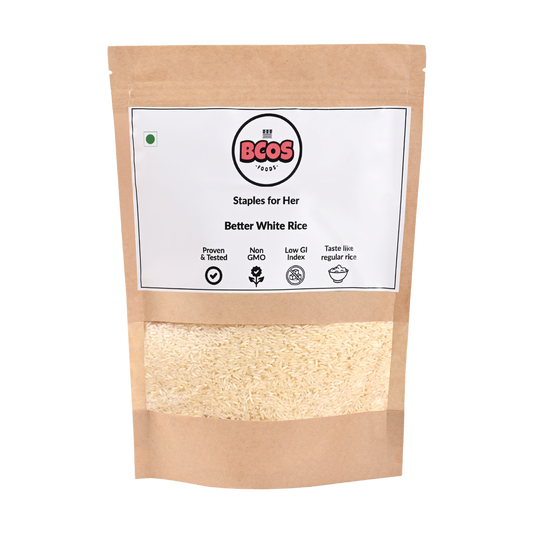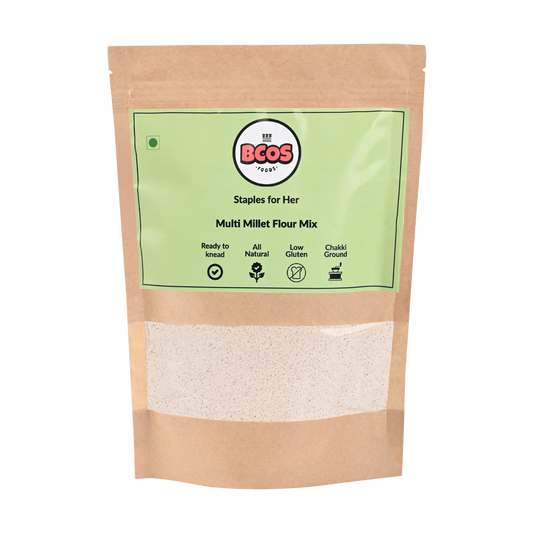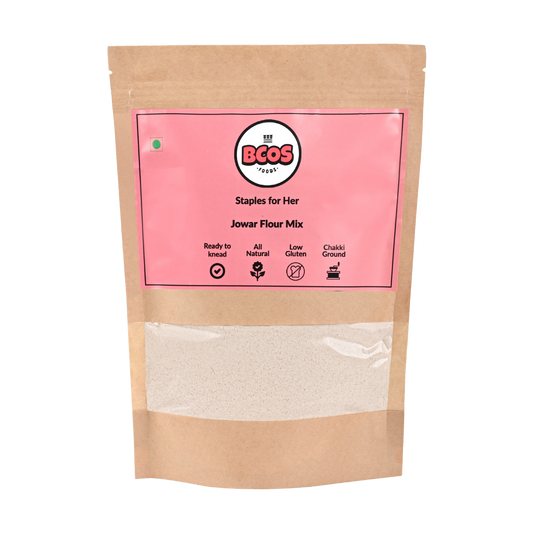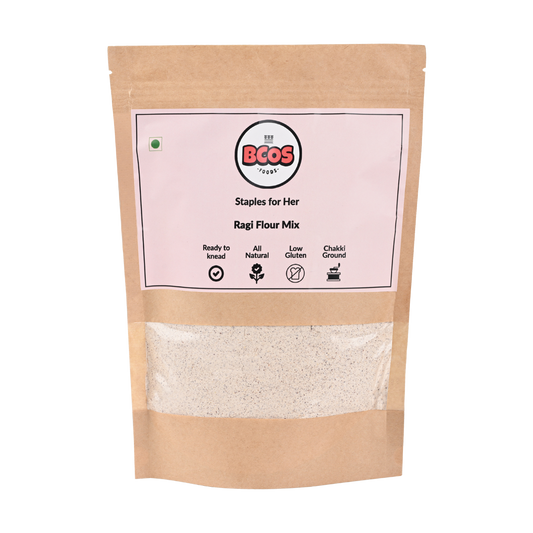Have you ever had one of those days where you felt like you were on an emotional seesaw, swinging between highs and lows without any clear reason? You're not alone.
Many factors influence your moods, but there's one culprit that often flies under the radar: PCOS.
PCOS, or polycystic ovary syndrome, is a hormonal disorder that affects many women — especially during their reproductive years. It's marked by a collection of symptoms that can range from irregular periods to acne and hair thinning. But the effects of PCOS aren’t just physical. The emotional and psychological toll it takes is significant, and understanding this connection is crucial for improving your well-being.
First, What Are Mood Swings?
The “mood swing” phenomenon is a common concept used to describe rapidly and intensely fluctuating emotions. People often describe mood swings as a “roller coaster” of feelings, from happiness and contentment to anger, irritability and even depression. It's not uncommon for mood swings to occur without an obvious cause. People may even experience changes in their mood if they have an underlying mental health issue.
Symptoms of mood swings can include:
- Fluctuating emotions and feelings
- Irritability
- Anger
- Sadness
Why does PCOS cause mood swings?
PCOS is closely associated with insulin resistance, where the body is resistant to the effects of insulin and therefore more insulin is produced. This leads a high amount of insulin in the bloodstream, which through a series of steps, results in your ovaries producing more testosterone and other androgens. The excess androgens, often described as “male hormones”, present in ladies with PCOS result in many of the physical symptoms of PCOS including hirsutism (unwanted hair growth), acne and male pattern baldness. Suffering from insulin resistance also has an adverse effect on weight, resulting in many ladies with PCOS being overweight and struggling to lose weight.
The body and the mind are intrinsically linked, and they both constantly affect one another so it can be a struggle for ladies with PCOS deal with these symptoms and they can result in feelings of hopelessness.
There is strong evidence to show that PCOS can have an adverse effect on mental health. A systematic review on anxiety and depression in PCOS concluded that “women with PCOS on average tend to experience mildly elevated anxiety and depression, significantly more than women without PCOS”. Women with PCOS also often struggle in dealing with inflammation, this can lead to high cortisol levels which is closely associated with stress and depression.
A recent cross-sectional study found that the tryptophan-kynurenine pathway was dysregulated in patients with PCOS. The body uses tryptophan to help make serotonin, which in turn is key to regulate appetite, sleep, mood, and pain.
Hence there is clear correlation between PCOS and Mood Swings.
How can I control my mood swings?
Healthy weight
If you have been reading a lot about PCOS, you will have seen this advice a lot of the time and it can be seriously irritating. The nature of the condition makes it very difficult for women to lose weight and often a normal healthy diet doesn’t have the same benefit as it does for those who don’t have PCOS. When you then look for help on your condition and are told to do something which your body is resistant to, it can be frustrating to say the least.
However, just because it is more difficult doesn’t make it impossible, you just need to have more discipline and more fight. That systematic review from earlier found that “women with PCOS with lower BMI tended to have slightly lower anxiety and depression scores”. On top of this, getting to a healthy weight can help to alleviate other symptoms of PCOS. This is why we always recommend getting your body to a healthy BMI. If you have struggled with diets in the past, we recommend a slow carb diet for ladies with PCOS.
Consider switching to BCOS grocery staples - they've been defined specifically for women with PCOS to have better hormonal health.
Regular exercise
Exercising often helps with regulating a variety of hormones as well as with losing weight. An important thing to remember when exercising is that it doesn’t have to be intense. Moderate exercises like walking or yoga are great, just try your best to be consistent!
How do you comfort someone with PCOS?
With lifestyle changes
One way to support a loved one who is battling PCOS is to change your diet and lifestyle alongside them. Providing this support can help provide motivation and discipline which can both wane when people feel they are battling alone.
Learn about the condition
Trying your best to understand about the condition will help you to be more empathetic. This understanding will leave you in the best position to be mindful of the way they might be feeling. There is good information on the NHS website, and we have written a lot about PCOS on Fertility Family. Additionally, you could ask to attend appointments with them if they wouldn’t mind.
Listen and be patient
As mentioned earlier, PCOS and mental health issues can go hand in hand. Be supportive and understanding if she is struggling with her self-esteem or mood. If necessary, support her decision to go and see a counsellor.
Takeaway
To summarize, PCOS is a condition that has a significant impact on both the physical and mental health of the body. It also increases the likelihood of developing other depressive symptoms and mood disorders. To manage your mental conditions, you can make several lifestyle changes, such as daily exercise and eating a well-balanced diet. If you are constantly having mood swings, seeking professional help is advised.





